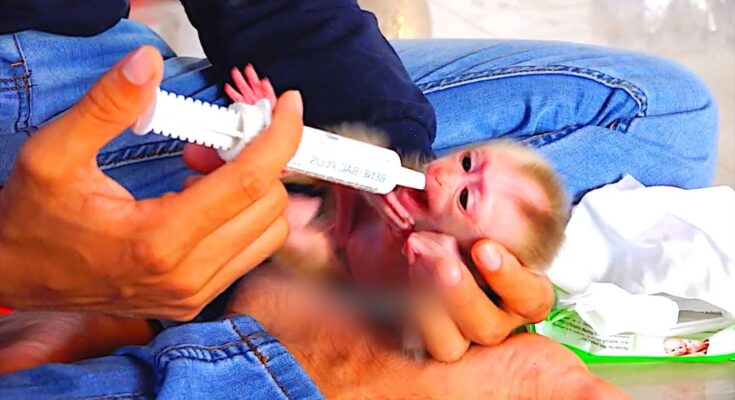If a baby monkey seems to lack energy or is lethargic, it’s important to address the situation promptly to ensure its well-being. First, assess the environment. A baby monkey that isn’t moving around or appearing lively might be experiencing stress from its surroundings, such as being in an unfamiliar space or separated from its mother. Stress and fear can drain a young animal’s energy quickly.
Next, check for physical signs of illness or injury. If the baby monkey is weak, it might be suffering from dehydration, malnutrition, or an underlying health issue. Ensure the baby is being fed the appropriate diet. In the wild, baby monkeys rely on their mother’s milk or a specific diet suited to their species. In captivity, it’s essential to provide a specialized formula or food tailored to the species’ nutritional needs. Insufficient or improper feeding can lead to energy depletion.
Temperature regulation is another important factor. Monkeys, especially infants, are sensitive to extreme temperatures. Make sure the baby is in a warm, comfortable environment, as cold or extreme heat can sap its energy.
If none of these issues seem to be the cause, it might be time to consult a veterinarian or wildlife expert. They can assess the monkey’s condition, perform necessary tests, and recommend treatment. In some cases, lethargy can be a symptom of a viral or bacterial infection, which would require medical intervention.
Above all, observing the baby monkey closely and acting quickly is key to ensuring it regains its strength and energy for healthy growth.
